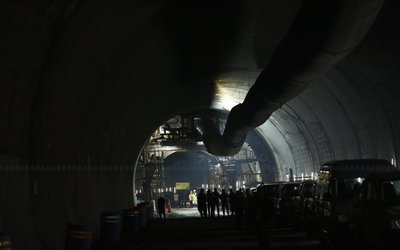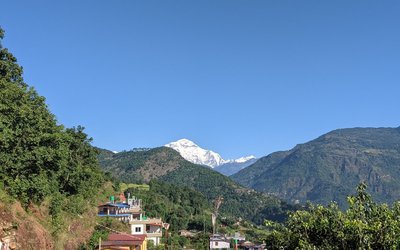An important and timely initiative to encourage citizens to claim their rights according to Nepal’s 2007 Right to Information Act has just started with the launch of the project “Empowering people to enjoy their Right to Information for greater accountability of Nepal’s power holders”.
The project, which is funded by the European Union under its European Instrument for Democracy and Human Rights, will be managed by UNESCO. The European Union has extended a contribution of EUR 290,000 (NPR 20.9 Million) for the EUR 365,000 project.
Main project partners are the Federation of Nepali Journalists, representing a majority of Nepal’s journalists, and Citizen’s Campaign for Right to Information, specialized in campaigning related to the Right to Information.
"The European Union has stepped in to support the efforts of its partners in ensuring the effective implementation of the Right to Information Act since it is hoped that doing so will contribute to better good governance, more transparency, accountability and democratic consolidation in the long run," says Alexander Spachis, Ambassador, Head of the EU Delegation to Nepal.
“One of the cornerstones of the success of Nepal’s peace process is an open and informed society. The project intends to improve transparency and accountability of decision-making”, says Axel Plathe, Head of the UNESCO Office in Kathmandu.
Nepal adopted the Right to information Act in 2007 with great expectations for improved transparency and accountability of the government. Despite the legal guarantee and the establishment of the Nepal Information Commission, the implementation of the law has been facing challenges. The aim of the RTI Act, to make the decision-making transparent and hold the State accountable, is still far from being realized. People do not have easy access to public information, and public agencies are not proactively providing this information.
Working with three main target groups: journalists, local “change agents” and government officials, the project aims to improve the transparency of Nepal’s government and the accountability of decision-making through a broader implementation of the Right to Information Act.
It works towards three specific objectives: citizens have access to information that is relevant to them and are hence motivated to exercise their democratic rights; journalists recognize their role as the watchdogs of the power holders and proactively seek and publish correct and timely information; and local level government officials understand their role as public servants and are more willing to share public information.
The project will contribute to foster transparent and inclusive decision-making processes and prevalence of democratic practices within the political institutions and increased media-responsiveness.
Launched in 2006, the European Instrument for Democracy and Human Rights (EIDHR) aims to provide support for the promotion of democracy and human rights in non-EU countries.
UNESCO’s mandate as set out in its 1945 Constitution specifically calls on the Organization to “promote the free flow of ideas by word and image”. Article 19 of the Universal Declaration of Human Rights states that the fundamental right of freedom of expression encompasses the freedom to “seek, receive and impart information and ideas through any media and regardless of frontiers”.
- TANAHU HYDROPOWER PROEJCT: A Significant Achievement
- Apr 15, 2024
- AMBASSADOR HANAN GODAR: Sharing Pain With A Nepali Family
- Mar 30, 2024
- VISIT OF KfW AND EIB TO NEPAL : Mission Matters
- Mar 25, 2024
- NEPAL BRITAIN SOCIETY: Pratima Pande's Leadership
- Mar 24, 2024
- NEPAL ARMY DAY: Time To Recall Glory
- Mar 15, 2024















